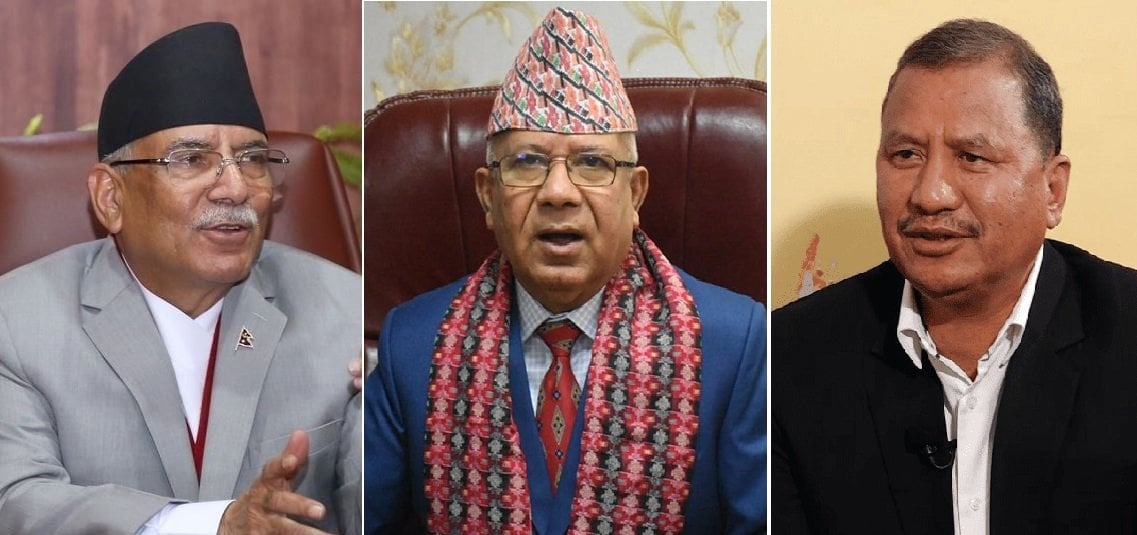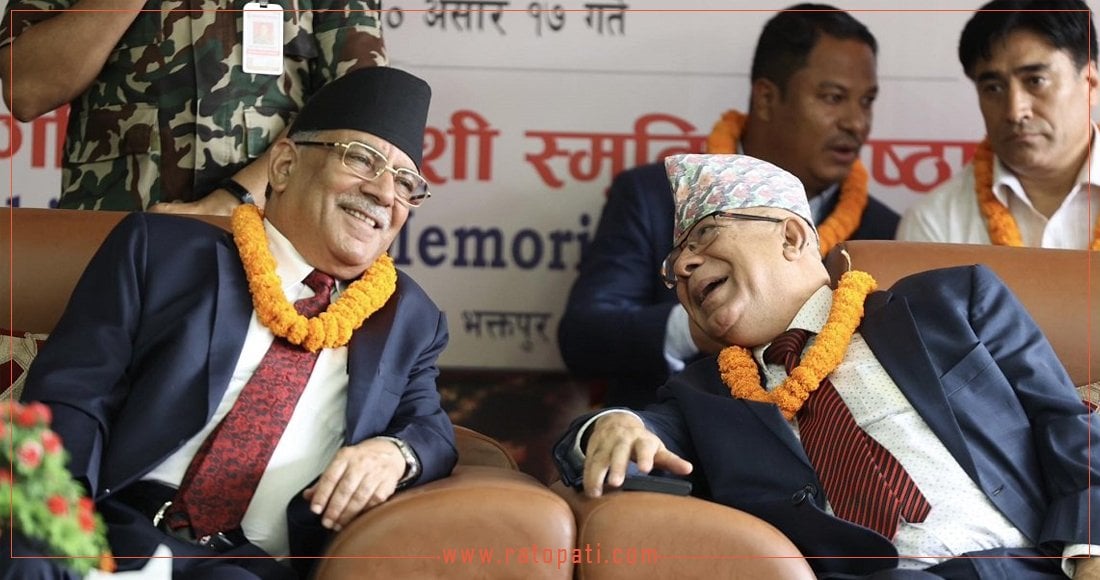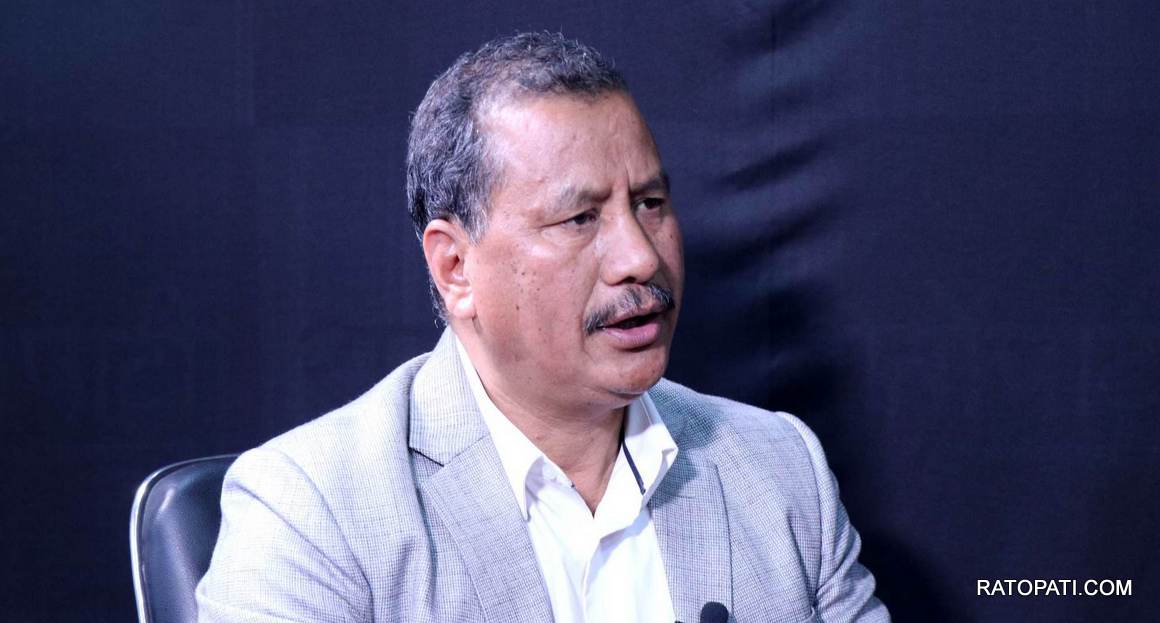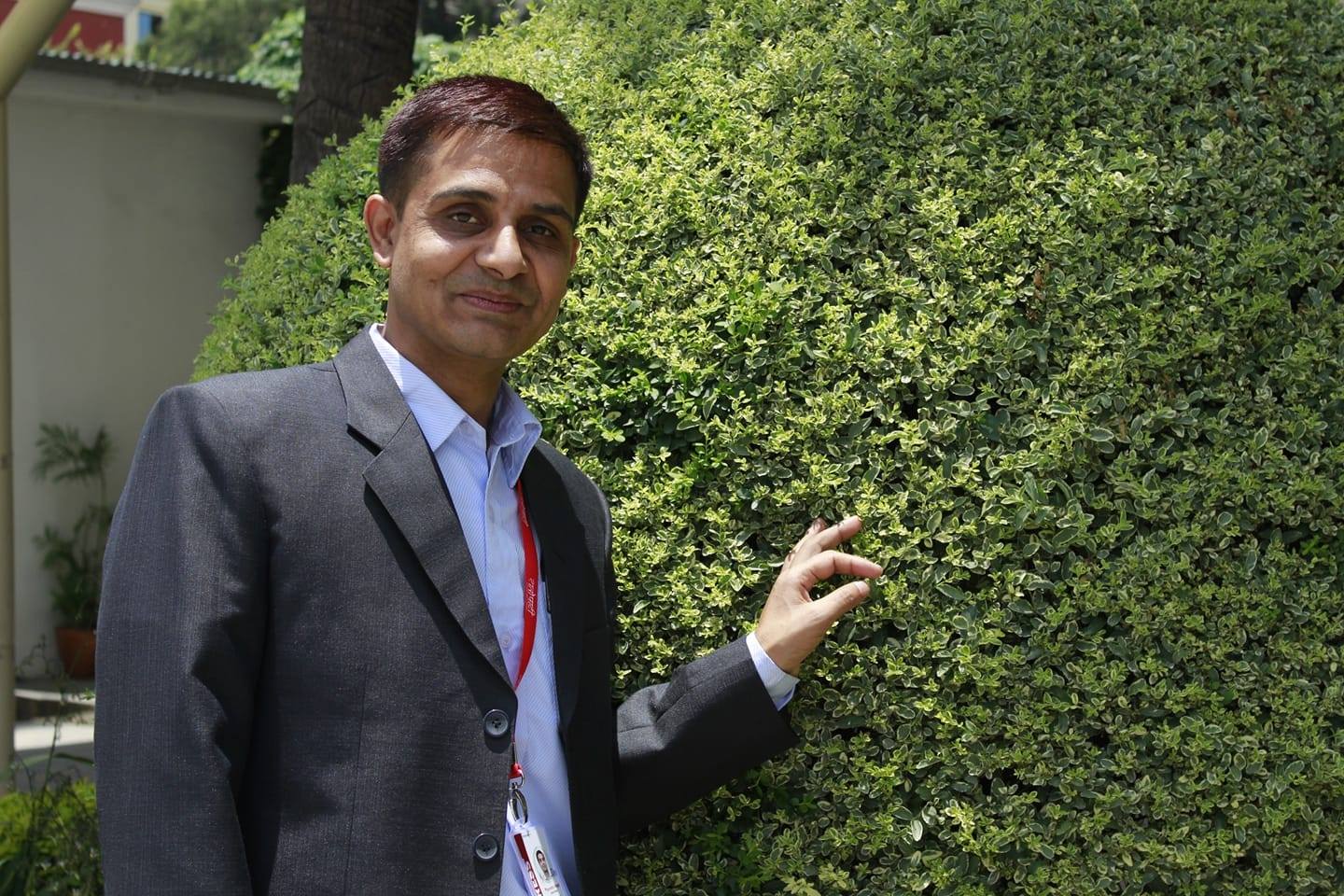Prachanda’s rush for unity: A strategic masterstroke or a desperate move?”

Kathmandu, August 18 - Pushkamal Dahal ‘Prachanda’, the former Prime Minister and the Chairman of Communist Party of Nepal (Maoist Center), appears to be in a rush to merge his party with Communist Party Of Nepal led by Netra Bikram Chand ‘Biplav’ and the Communist Party of Nepal (Unified Socialist), led by Madhav Kumar Nepal. Following his departure from power, Prachanda’s movement has shifted from Singhadurbar and Baluwatar to Khumaltar and Koteshwor.
Prachanda is now under pressure to resolve internal disputes within his party. Rather than allowing these issues to be addressed through lawful means, he intermittently advocates for party unity, seeking to align with Madhav Kumar Nepal, Chair of the CPN Unified Socialist Party, and with CPN General Secretary Netra Bikram Chand 'Biplav'. Despite the political culture and policy of uniting parties with shared ideologies, policies, and principles, Prachanda struggles to forget the disunity and discord that plagued the then CPN, formed by the merger of Maoist and UML. His leadership has been criticized for its instability, although Prachanda prefers to describe these criticisms as reflections of his dynamic and proactive approach.
Additionally, the Maoists, under Prachanda’s leadership, have been in power for the longest period since the peace process. Consequently, Prachanda holds power in high regard; upon losing it, he immediately perceives conspiracies and regression. His recent public statements following his departure from power further indicate this sentiment.

Prachanda now has only one option to reform his party and win in upcoming elections. However, rather than pursuing this path, Prachanda seems more inclined to consolidate the divided communists and project a unified large party. This inclination raises the question of whether his recent push for party unity is driven by the motive of leading a large Communist Party.
Prachanda has not provided a clear explanation regarding the basis for party unity. Instead, Madhav Kumar Nepal, Chairman of the Unified Socialist Party, and Netra Bikram Chand 'Biplab', General Secretary of the CPN, have adopted a 'wait and see' approach, reflecting a lack of trust in Prachanda’s motives.
This cautious stance from Nepal and Chand may be informed by past experiences with Prachanda, who seems more focused on increasing numerical strength rather than integrating programs, policies, ideas, and principles. Consequently, they have suggested that clarity and cooperation should be prioritized over immediate unity.
In response to Nepal and Chand’s reticence, Prachanda, who was initially eager for immediate unity, assured that the issues raised by Deputy General Sectretary Janardan Sharma 'Prabhakar', who is dissatisfied with him, could be addressed in a standing committee meeting. However, some Maoist leaders doubt that Prachanda will fulfill this promise.
Maoist Supremo Prachanda, who emerged as the third party with 32 seats in the elections held in November 2022, managed to lead the government until June 2024. During this period, while the first and second parties alternated out of power, Prachanda’s party remained in government, albeit not without anxiety from leaders like Deuba and Oli, who found this arrangement less than ideal.
Prachanda capitalized on the lack of a clear parliamentary majority to maintain his position, frequently shifting alliances between Congress and UML to remain in power. This policy of changing alliances led to rapid changes in government across all seven provinces, which UML and Congress criticized as instability. Amidst this turmoil, Prachanda’s government initiated investigations into corruption, leading to accusations of duplicity from some Congress-UML members.
Prachanda’s government also engaged in investigating on contentious issues such as Bhutanese refugees scam and the misappropriation of cooperative funds, further provoking discontent within Congress and UML cohorts. This maneuvering did not endear Prachanda to his rivals.
UML Chairman KP Sharma Oli and Congress President Sher Bahadur Deuba, recognizing Prachanda's attempts to extend his rule through shifting allegiances, reached an agreement on July 1 at the residence of businessman Rameshwar Thapa. This agreement exposed Prachanda's political cunningness as no longer effective in Nepali politics.
The Congress-UML coalition used the pretext of advocating for good governance and a stable government to justify their assumption of power, allowing Prachanda to perceive his exit from power as a conspiracy and regression.
When Prachanda assumed power, he lacked the means to address internal party conflicts and maintain organizational cohesion. Despite the common understanding that addressing critics is more engaging than enduring criticism, only a few have the courage to speak out. Leaders such as Baburam Bhattarai, Mohan Baidhya, and Netra Bikram Chand, who left the party after criticizing Prachanda, underscore this point.
Recent documents submitted by Sharma in the Standing Committee meetings indicate dissatisfaction with Prachanda’s leadership. Nevertheless, it appears that an alternative within the Maoists to challenge Prachanda’s dominance has yet to materialize, highlighting the difficulty of countering his influence within the party.
As Chairman, Prachanda is tasked with managing dissatisfaction and conflict within the party. However, it is evident that rather than addressing these issues and fostering unity, he prefers to keep the problems at bay by seeking alternative solutions. Some leaders believe this approach may have influenced Prachanda’s decision to explore unity with the Unified Socialist Party and the CPN, while sidelining internal disputes.
Whether or not the "forest tiger" poses a threat, the "mind tiger" has already unsettled Prachanda, as evidenced by his demeanor. This indicates that Prachanda is concerned about Janardan potentially causing a rift within the party.
Prachanda has mentioned that when informed about Janardan allegedly splitting the party, he too had believed it at first. However, by the end of the standing committee meeting, all doubts were dispelled. During his last discussion with Sharma, Prachanda noted that the conversation was focused on uniting the party, suggesting some alignment between the expressed concerns and his understanding.
“During the standing committee meeting, some members voiced their opinions in a different way. Comrade Janardan Sharma did not document his differing views in writing, nor did he explicitly state that there was a difference of opinion. Instead, he presented it as his perspective, indicating that while others had discussed it verbally, he formalized it in writing. This caused waves and suspicions, though the matter was largely addressed as a permanent resolution,” clarified Prachanda.
Currently, Congress and UML are discussing constitutional amendments. Prachanda has argued that amending the constitution would contradict the principles of inclusive proportionality. According to sources close to him, Prachanda proposed unity with Nepal and Chand to create a robust party both in the House and on the streets.
However, Nepal has signaled a 'wait and see' approach, stating that a decision on party unity has not yet been made. Biplav has sought clarity on ideas and programs. It appears Prachanda withdrew from efforts to unify with these two leaders after they expressed concerns about rushing the unification process.

Speaking at the ninth annual general meeting of the ‘Posta Bahadur Bogati Memorial Foundation’ on Saturday, Prachanda attempted to clarify that the party would remain united and move forward cohesively following the standing committee meeting.
Jagannath Khatiwada, head of the publicity department of the Unified Socialist Party, commented, "Prachanda is eager for unity, but we are not in such a rush." He added that there is no need for them to be concerned about party unity every time Prachanda becomes vulnerable. "Prachanda has frequently discussed party unity and the prime ministerial role, but we have been given a prime minister several times. It is becoming burdensome to repeatedly take on the prime minister’s role," Khatiwada sarcastically told Ratopati. "Instead, we should focus on minimal cooperation by forming a Socialist Front. If we proceed this way, we cannot predict where it might lead."
Despite a significant divide between Maoist cadres and those from the Unified Socialists, it is challenging for Socialist leaders to commit to unity based on Prachanda's initial efforts. Moreover, leaders of the Unified Socialists have openly expressed their reluctance to rush into unity, citing repeated betrayals by Prachanda.
Khatiwada voiced his frustration, saying, "Prachanda repeatedly deceives us when he is in power. How many times will he cheat us again by pushing for unity while he has already weakened us?"
According to members of the Unified Socialists, Prachanda has betrayed their party three times since 2023.
Prachanda's strategy of applying pressure on the Congress-UML government by creating a stronger opposition front in Parliament is evident from his public statements. He believes that merging the Unified Socilaist , which holds 10 seats in the House of Representatives and eight seats in the National Assembly, with the Maoists will enhance his power.
By combining the 10 seats of the Unified Socialists with the 32 seats held by the Maoists, Prachanda envisions forming a 'strong party' with 42 seats. He also believes that integrating Biplav's party, even if it is not represented in Parliament, would bolster their street presence and facilitate pressure on the government from both the streets and the legislature.
Although Prachanda’s efforts are not deemed flawed, the lack of trust ignited by his past behavior has led to a 'brake' in his hasty attempts to unite the parties.
Karnajit Budhathoki, a member of the Standing Committee of the Communist Party of Nepal, stated that the Maoist Center is unclear about party unity. The Maoist Standing Committee has not made a concrete decision, Budha explained to Ratopati, adding, "Unity should be decided by the central committee, and after unity, action plan should be clear, rather than who will get what position."
Budhathoki emphasized that there are internal contradictions within the Maoists and that clarity is needed before unity can proceed. He asserted, "The conflicts within the party must be resolved first. Only then will the process of unity advance."










Leave Comment